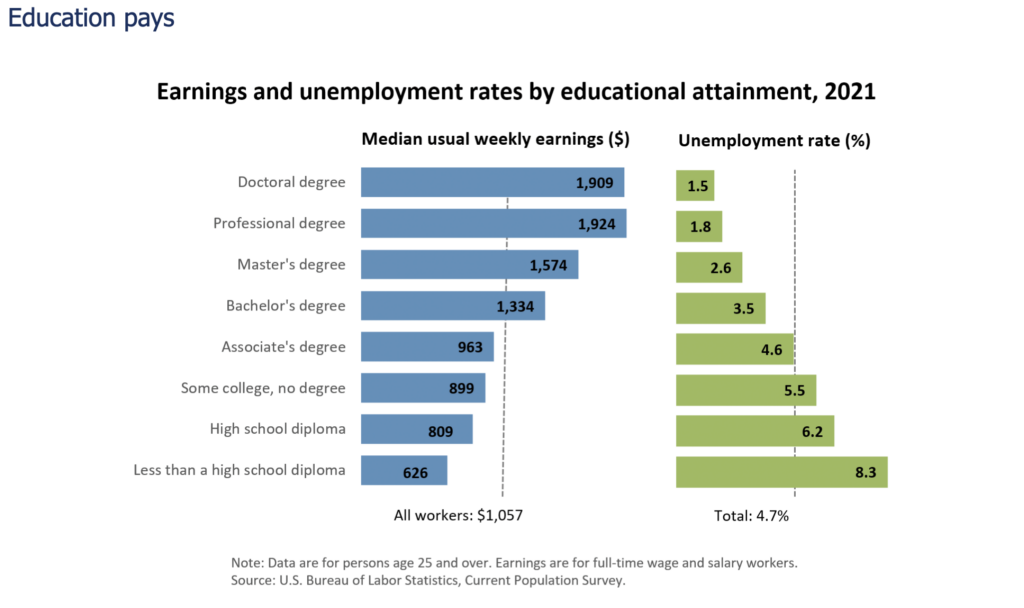The University Center of Greenville (UCG) was established in 1987 to bring Bachelor’s Completion and Graduate (Masters and Doctorate) Degrees from many of the State’s most respected and highest ranked Universities to the citizens and economic community of Greater Greenville. As of 2022, 9 prestigious academic institutions offer degree programs in partnership with UCG.
Frequently Asked Questions
The University Center of Greenville (UCG) is not a university itself but rather the physical location that houses degree programs from 9 different SC universities. The home institution administers the admissions requirements, curriculum, and professors. As such, your degree is awarded to you by the university that offers your program, and your diploma is the same as having completed a program on campus.
Students apply directly to the university offering their program of interest. On the application, they simply indicate UCG as their preferred campus, if there are multiple delivery locations. Admissions decisions are handled by the home institution’s admissions office, and the requirements are exactly the same as for those who’ve selected the main campus as their preferred location.
Each member university sets tuition, but students attending programs at UCG save by not spending money on room/board/commute and by being able to maintain current employment and family obligations. Finally, undergraduate students who transfer from a community college to UCG save significantly on the overall cost of a 4-year bachelor’s degree, given the less expensive tuition rates at community colleges coupled with the savings of staying close to home for the duration of the degree.
While you are still a student at your home university and free to utilize main campus services, everything you need to be successful as a student can also be found at UCG, including a library, study spaces, printing abilities, and university student services professionals. All of your in-seat classes, while taught by professors employed by your home campus, will also be held at UCG. The only time you need to go to your main campus is to obtain your diploma if you choose to participate in the formal graduation ceremony.
Degree programs at the University Center of Greenville begin at the Junior & Senior level for bachelor’s Completion degrees. Through a partnership with Greenville Technical College, students can complete their Freshman and Sophomore years there and then transfer to one of UCG’s offering universities. Please consult a representative from the university you would like to attend before enrolling in Greenville Technical College to successfully plan your transfer program.
Additionally, if you have college coursework from another college/university, but never completed a degree, you may need to complete some general education requirements at Greenville Technical College, or some other institution, prior to starting your degree completion coursework at UCG.
The Bureau of Labor and Statistics has shared the average weekly salary for those with various education levels. The data is clear: The greater your level of education, the higher you can expect your salary to be.
The difference in earning power is striking:
- Those without a high school diploma can expect to earn an average of $619 per week, or $32,188 annually.
- Those with high school diplomas can expect to earn an average of $781 weekly or $40,612 annually.
- Associate degree holders earn an average of $938 per week or $48,776 annually.
Earning a bachelor’s degree brings with it a substantial jump in pay. Bachelor’s degree holders make an average of $1,305 per week or $67,860 yearly. That is over $19,084 more than associate degree holders and over $27,000 more than high school graduates.

If you are looking to complete a bachelor’s degree and aren’t sure what major is the best professional fit for you, we suggest you call the human resources departments of some organizations in the field you would like to enter. Ask what credentials they look for in prospective employees. Ask, too, if openings in the field are plentiful.
Find out which schools offer programs that will help you advance in your chosen industry. Compare length, schedule, cost, content, transferability, placement rates, financial aid availability, and other factors that are important to you.
If you need additional information or have specific questions, please feel free to contact UCG and we will do our best to help direct you to the best school for you. You can email us to start the conversation.
